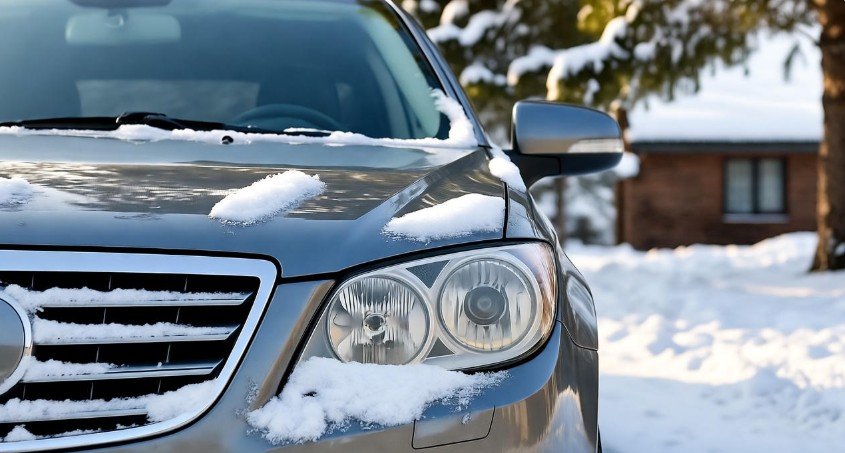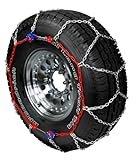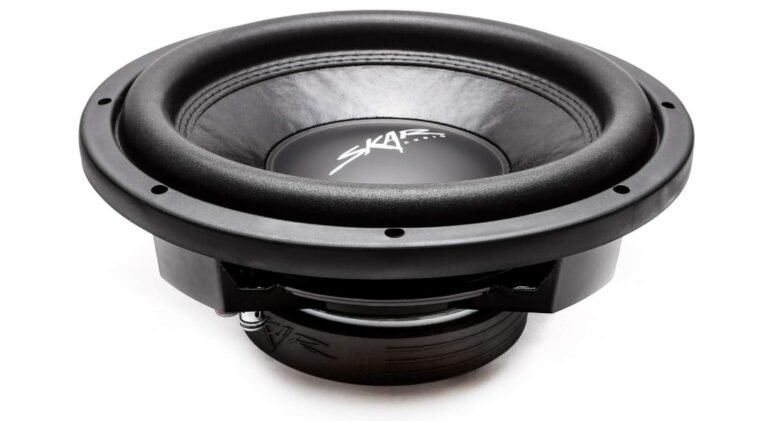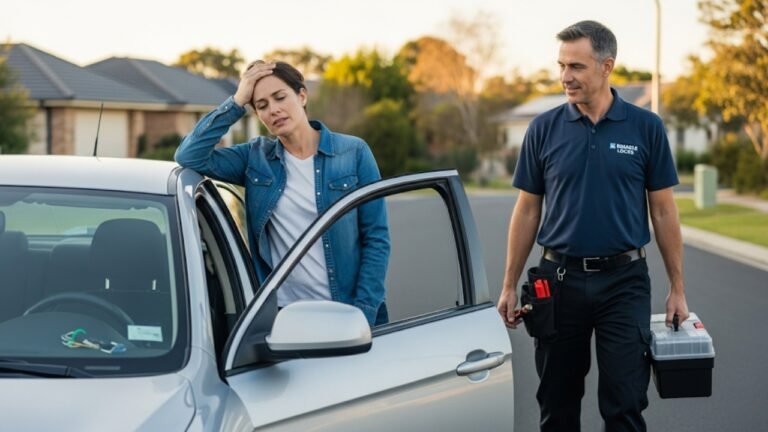Can Car Gas Freeze? Discover Cold Weather Tips to Prevent Fuel Issues

If you’ve ever tried to start your car on a freezing morning and heard it struggle—or worse, not start at all—you know how cruel winter can be to vehicles. Among the many cold-weather worries drivers face, one common question pops up every year: Can car gas freeze?
It’s a fair concern. After all, we know that water, coolant, and even windshield washer fluid can freeze in extreme cold. So, it’s natural to wonder if your fuel could face the same fate. The thought of frozen gasoline sounds like a scene out of an Arctic survival movie—your car parked helplessly, engine refusing to turn over, as you sit wrapped in your coat, praying for a miracle.
In this article, we’ll break down what really happens to car gas in freezing temperatures, why your car might struggle to start in the cold even if the fuel isn’t technically frozen, and—most importantly—how to prevent fuel issues during harsh winters.
Grab a warm drink, because we’re about to make winter driving a little less scary.
In This Article
- 1 Understanding What Gasoline Really Is (And Why It Rarely Freezes)
- 2 Why Cold Weather Can Still Cause Fuel Problems
- 3 The Science Behind Fuel Freezing: Why It’s Rare But Not Impossible
- 4 How Frozen Fuel Can Affect Your Car’s Performance
- 5 Proven Tips to Prevent Frozen Car Gas
- 6 When Car Gas Freezes: What You Should Do Next
- 7 Advanced Cold-Weather Driving Tips to Avoid Fuel Issues
- 8 Debunking Common Myths About Gasoline Freezing
- 9 Long-Term Habits to Protect Your Fuel System in Winter
- 10 Signs That Your Car Gas Might Be Freezing
- 11 Cold Weather Checklist for Preventing Fuel Problems
- 12 Summary: Winter-Proof Your Vehicle Against Frozen Gas
- 13 Frequently Asked Questions (FAQs)
Understanding What Gasoline Really Is (And Why It Rarely Freezes)
Before we can answer whether car gas can freeze, we need to understand what gasoline actually is. Gasoline isn’t a single, uniform substance—it’s a mixture of hydrocarbons like alkanes, cycloalkanes, and aromatic compounds. Each of these has a different chemical structure and, therefore, a different freezing point.
That means your fuel doesn’t solidify all at once. Instead, parts of it may start to gel or separate at very low temperatures, while others remain fluid. This process is called phase separation—and while the gas itself may not turn into a block of ice, it can still cause trouble in your car’s fuel system.
The truth? Gasoline typically doesn’t freeze under normal winter conditions. Most gasoline blends begin to solidify around -40°F (-40°C) or lower. That’s far colder than even most northern U.S. states experience in winter. However, in extremely cold climates like parts of Canada or Alaska, it’s possible for components within the fuel to start thickening or separating, especially if water or ethanol is present.
So, while your gas tank won’t turn into an ice cube, there’s more going on beneath the surface that can affect your vehicle’s performance in frigid weather.
Why Cold Weather Can Still Cause Fuel Problems
Even if car gas doesn’t technically freeze, cold weather can still cause major issues with how it behaves. Imagine honey on a hot day versus honey straight from the fridge. The cold version moves slower, right? Gasoline works the same way.
In freezing conditions, gasoline becomes less volatile, meaning it doesn’t vaporize as easily. Since combustion engines rely on vaporized fuel to ignite, your car may struggle to start because the fuel isn’t turning into vapor efficiently.
There’s also the issue of condensation inside your gas tank. When warm air enters your tank and cools rapidly overnight, tiny water droplets form. This moisture can freeze in the fuel lines or filters, creating blockages that stop fuel from flowing properly.
You might notice symptoms like:
-
Slow or failed engine starts
-
Rough idling or sputtering sounds
-
Reduced power or acceleration
-
Warning lights related to engine performance
In short, your gas might not freeze—but your fuel system can still suffer in the cold, and that’s where prevention becomes key.
The Science Behind Fuel Freezing: Why It’s Rare But Not Impossible
Let’s dive deeper into the science. Gasoline is made of light hydrocarbons, with molecules ranging from C4 to C12 carbon atoms. Each compound—like butane, pentane, or octane—has a distinct freezing point. For example:
| Hydrocarbon Component | Approximate Freezing Point (°F) |
|---|---|
| Butane (C4H10) | -220°F (-140°C) |
| Pentane (C5H12) | -200°F (-130°C) |
| Octane (C8H18) | -70°F (-57°C) |
As you can see, most of these components freeze at temperatures far colder than what we typically experience. However, impurities or ethanol in the gas can affect this balance. Ethanol, for instance, attracts moisture—which can create ice crystals in your fuel system even if the gasoline itself stays liquid.
This is why cars that use ethanol-blended gasoline (E10 or E15) might experience more cold-weather issues than those using pure gasoline. The water-ethanol mix can freeze at around -20°F (-29°C), leading to clogged filters or injectors.
So while gasoline as a whole doesn’t freeze easily, specific conditions—like moisture, ethanol, or poor-quality fuel—can create real problems when temperatures plummet.
How Frozen Fuel Can Affect Your Car’s Performance
Let’s say you wake up on a frosty morning, turn your key, and your car sputters or doesn’t start. If car gas freezes or experiences phase separation, your fuel system takes the hit first.
Here’s what happens step by step:
-
Fuel Line Blockage: Ice crystals from water or frozen fuel components can clog your fuel lines, stopping gasoline from reaching the engine.
-
Fuel Pump Strain: If your pump tries to pull in frozen or thickened fuel, it has to work harder—eventually leading to mechanical strain or even failure.
-
Injector Malfunctions: Tiny ice particles or thick fuel can jam your injectors, causing uneven fuel distribution, misfires, or reduced efficiency.
-
Engine Trouble: You might notice hard starts, rough idling, or reduced performance—your engine can’t get the fuel it needs at the right rate.
These symptoms might mimic other problems, like a weak battery or old spark plugs, but in extreme cold, frozen or thickened fuel is a common culprit.
A friend once shared how his car refused to start during a -30°F morning in Minnesota. He thought the battery was dead, but after thawing his car in a heated garage for a few hours, it started perfectly fine. The issue wasn’t electrical—it was frozen condensation in the fuel line.
Moral of the story? Even if your fuel doesn’t “freeze,” cold-related blockages are real—and they can stop your car just the same.
Proven Tips to Prevent Frozen Car Gas
You can’t control the weather, but you can control how your car responds to it. Here are the best strategies to prevent fuel issues in freezing weather and keep your vehicle running smoothly through the coldest months.
1. Keep Your Fuel Tank Full
A simple but powerful habit. A full tank reduces the amount of air—and therefore moisture—that can condense inside. Less moisture means fewer chances for water to freeze and clog your lines.
2. Use a Fuel Additive or Gas Antifreeze
Specialized fuel additives are available at most auto stores that help prevent moisture buildup and improve fuel performance in cold weather. These products contain alcohol-based compounds that absorb water and prevent freezing.
3. Park Indoors Whenever Possible
If you have access to a garage or heated parking space, use it. Even a slight temperature increase can prevent your fuel from thickening or moisture from turning into ice.
4. Avoid Running on Low Fuel
Driving on a nearly empty tank exposes the inner surfaces of your tank to air, which encourages condensation. Keeping your tank at least half full provides a protective buffer.
5. Consider a Fuel Heater for Extreme Conditions
For those living in northern or mountainous areas where temperatures can drop below -30°F, investing in a fuel line heater or engine block heater can make a huge difference. These devices gently warm your engine and fuel system overnight, making morning starts much smoother.
These simple practices can save you from hours of frustration, costly repairs, and the dreaded no-start mornings that winter often brings.
When Car Gas Freezes: What You Should Do Next
Sometimes, despite your best efforts, you might still face a situation where your car gas freezes or your vehicle refuses to start on a freezing morning. Here’s how to handle it safely:
-
Don’t Force the Engine: If your car won’t start, avoid repeatedly cranking the engine. This can drain your battery and damage your starter or fuel pump.
-
Move the Vehicle to a Warmer Spot: If possible, push or tow your car into a garage or warmer area. Even a few degrees of warmth can help thaw frozen components.
-
Use a Fuel Additive or De-Icer: Once you’re in a safe place, add a gas-line antifreeze or de-icer product. These are designed to melt ice crystals and restore fuel flow.
-
Wait and Try Again: After giving the additive time to work (usually 30–60 minutes), try starting your engine again.
-
Call for Professional Help: If your car still won’t start or you suspect serious damage, it’s best to contact a certified mechanic or roadside assistance service.
One key rule: never try to heat your fuel tank directly using external sources like torches or space heaters—this is extremely dangerous and can lead to fires or explosions. Always opt for safe, professional methods.
Advanced Cold-Weather Driving Tips to Avoid Fuel Issues
Winter driving isn’t just about putting on warm clothes; it’s about preparing your car for the unique challenges of the season. Even if you take preventive measures for your fuel, other aspects of cold weather can indirectly affect your gasoline performance.
One tip is to warm up your engine gradually. While modern vehicles don’t require long idling times, starting gently and avoiding sudden acceleration allows your fuel system to operate efficiently in cold temperatures. Rapid revving immediately after startup can stress a partially thickened fuel mixture or a cold engine.
Another tip is to check your fuel filter regularly. Over time, fuel filters can accumulate water or debris, which in freezing temperatures can clog lines and prevent proper fuel flow. Replacing the filter before winter hits ensures that even if minor condensation occurs, it won’t disrupt engine performance.
Additionally, using the correct oil viscosity for winter is essential. Thicker oils can strain your engine and make it harder for fuel to ignite, while lighter, winter-grade oils reduce friction and help your engine run smoother in freezing conditions. Combine this with proper tire maintenance, battery checks, and antifreeze levels, and your car is better equipped to handle extreme cold.
Debunking Common Myths About Gasoline Freezing
There’s a lot of confusion about whether car gas can freeze, often fueled by anecdotes and misinterpretations. Let’s clear up a few common myths:
-
Myth 1: Gasoline freezes like water.
Not true. Gasoline’s freezing point is far lower than any winter temperature most drivers experience. While moisture in the tank can freeze, the gasoline itself stays liquid under normal winter conditions. -
Myth 2: Premium gas freezes less than regular gas.
The truth is, all hydrocarbon-based fuels behave similarly in cold temperatures. Premium gas may have different additives for performance, but it doesn’t significantly resist freezing any better than regular fuel. -
Myth 3: A full tank prevents gas from freezing.
While keeping your tank full reduces condensation, it doesn’t change the freezing point of gasoline. It’s just a simple and effective precaution to avoid ice formation in fuel lines.
Understanding these myths helps you focus on the real preventive measures rather than unnecessary worries.
Long-Term Habits to Protect Your Fuel System in Winter
Preventing frozen fuel isn’t just a one-time task—it requires consistent habits every winter. Here’s a roadmap to protect your vehicle year after year:
-
Use Cold-Weather Fuel Additives Early: Don’t wait until temperatures plummet. Adding antifreeze or gas stabilizers at the start of winter ensures the fuel system is protected from the first freeze.
-
Regularly Inspect Fuel Lines and Tanks: Look for cracks, corrosion, or leaks, as these issues can worsen in freezing conditions.
-
Store the Vehicle Properly if Unused: If you plan to leave your car idle during winter, fill the tank completely and add a fuel stabilizer to prevent condensation and degradation.
-
Schedule Routine Maintenance: Winter-ready spark plugs, a healthy battery, and a functioning fuel pump all contribute to avoiding issues caused by thickened fuel.
These long-term strategies reduce stress during cold months, giving you peace of mind and smoother mornings when frost covers your driveway.
Signs That Your Car Gas Might Be Freezing
Even if it’s rare, knowing the warning signs can save you from major headaches. Watch for:
-
Difficulty starting the engine in the morning
-
Sputtering or misfiring at idle
-
Engine hesitation during acceleration
-
Strange noises from the fuel pump
-
Check engine light related to fuel system issues
If you experience these symptoms, it’s worth considering whether moisture in the fuel or partial fuel thickening is the culprit, and taking steps like thawing the car in a warmer garage and using a fuel additive.
Cold Weather Checklist for Preventing Fuel Problems
Here’s a quick, practical checklist for winter drivers to safeguard their fuel system:
-
✅ Keep the gas tank at least half full
-
✅ Use a gas antifreeze or fuel additive
-
✅ Park in a heated or insulated garage
-
✅ Inspect fuel lines, filters, and injectors before winter
-
✅ Warm up the engine gradually, avoid high revs immediately
-
✅ Maintain battery and oil levels suitable for cold weather
-
✅ Consider fuel heaters in extreme climates
Following these steps consistently can dramatically reduce the chances of a frozen fuel-related issue.
Summary: Winter-Proof Your Vehicle Against Frozen Gas
So, can car gas freeze? The honest answer is: rarely. Gasoline’s freezing point is extremely low, far beyond normal winter temperatures. However, moisture, ethanol blends, or extreme cold can lead to partial freezing or phase separation, which can disrupt your fuel system and affect engine performance.
The good news is that prevention is straightforward. Keeping your fuel tank full, using cold-weather additives, parking in warm spaces, and performing regular maintenance all combine to protect your car against potential fuel issues. And if the worst happens, safe thawing and professional help will get you back on the road quickly.
Winter driving doesn’t have to be a nightmare. With the right strategies and a little preparation, you can ensure your car starts reliably, your engine runs smoothly, and your morning commute is free of frost-related frustration.
Frequently Asked Questions (FAQs)
1. Can Car Gas Freeze During Winter?
Yes, but only under extreme conditions. Gasoline freezes at around -40°F (-40°C). Normal winter temperatures rarely reach this point, but moisture or ethanol in the fuel can create ice crystals in the fuel system at higher temperatures.
2. What Happens If Car Gas Freezes?
Frozen fuel or phase separation can block fuel lines, damage the fuel pump, clog injectors, and cause poor engine performance, including hard starts and misfires.
3. How Can I Prevent Car Gas from Freezing?
Use fuel additives, park indoors, keep your tank full, avoid long idle periods, and consider a fuel line heater in extremely cold areas.
4. Can Fuel Stabilizers Help Prevent Freezing?
Yes. Fuel stabilizers reduce moisture in the tank, prevent ice formation, and improve cold-weather fuel flow. They also help maintain fuel quality during extended storage.
5. Is Ethanol Fuel More Likely to Freeze?
Yes, ethanol attracts moisture, which can freeze and block your fuel system. E10 and higher ethanol blends are more prone to cold-weather problems.
6. Should I Warm Up My Car Before Driving in Winter?
A brief warm-up is fine, but avoid long idling. Modern engines warm quickly, and excessive idling wastes fuel. Gradual acceleration after startup is safer in cold weather.
7. What Temperature Is Considered Dangerous for Car Gas?
Gasoline itself freezes around -40°F, but fuel system issues can occur at higher temperatures if moisture or ethanol is present, often around -20°F to -30°F.
8. Can a Fuel Heater Prevent All Cold-Weather Problems?
While a fuel heater greatly reduces the risk of freezing and phase separation, combining it with other preventive measures like additives and full tanks ensures maximum protection.
By following these insights and tips, you can confidently face winter without worrying whether your car gas will freeze. Preparation, knowledge, and preventive measures make all the difference, keeping your vehicle reliable no matter how low the mercury drops.






